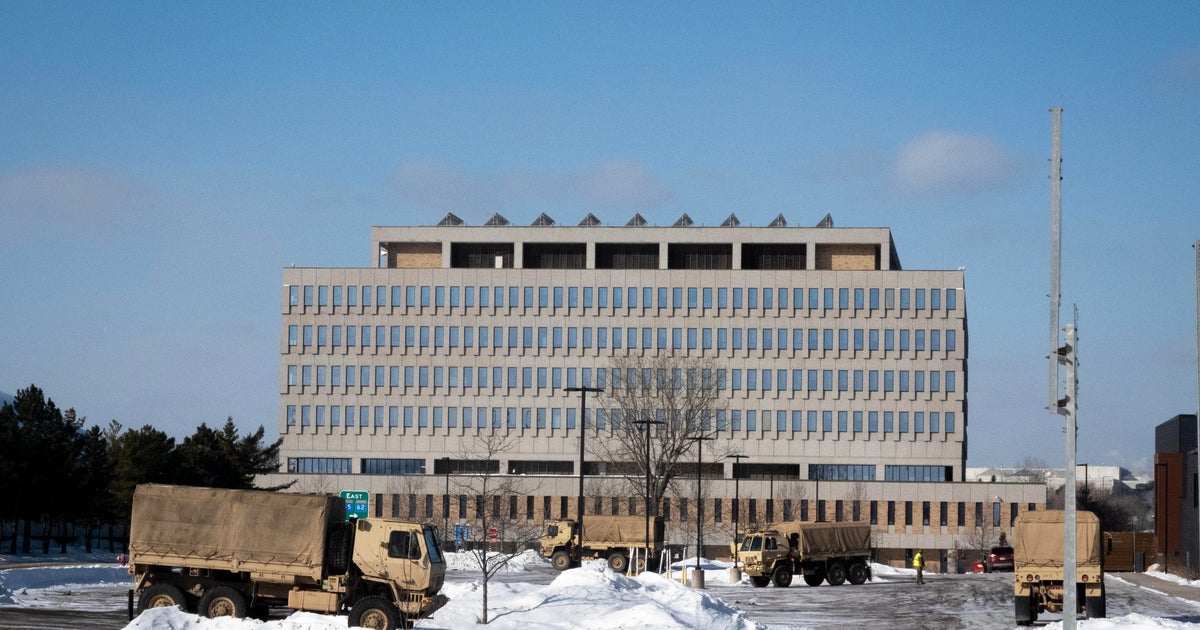The CDC could lose access to key data to track COVID-19
The Centers for Disease Control and Prevention could lose access to key metrics to track COVID-19, the agency warned Monday, a casualty of the looming end to a wide swath of emergency powers the federal government has wielded to respond to the years-long pandemic.
"Data related to COVID-19 test results and hospitalizations are currently available because of the public health emergency declaration. When that declaration lapses, so does CDC's access to this important information," the CDC said in a statement to CBS News.
"We are the compiler of the data, but we do not have the authority to collect it. And so we rely on states being willing to share it with us and the data use authorization, data use agreements, in order to do so," CDC Director Dr. Rochelle Walensky told CBS News chief medical correspondent Dr. Jon LaPook in an interview for "60 Minutes."
CDC's current guidance for COVID-19 relies largely on data on cases and hospitalizations from around the country, which it analyzes to come up with county-by-county "COVID-19 Community Levels." Federal data from hospitals has also allowed the Biden administration to track the strain on the health care system, as well as warning signs around the danger posed by the virus.
"The nation can no longer continue with the current, fractured approach of collecting public health data to be better prepared for future pandemics," said the CDC statement.
Under the public health emergency first declared by the Trump administration in 2020, the federal government is able to access an array of funds and authorities to curb outbreaks. The declaration, which must be renewed every 90 days, was last extended in mid-January.
That includes power Congress gave the federal government in the CARES Act to compel laboratories to report COVID-19 test results "until the end of the Secretary's Public Health Emergency declaration with respect to COVID-19 or any extension of such declaration."
The CDC has touted efforts to modernize its data systems, pouring money and manpower into updating its programs to gather and analyze data on the disease nationwide.
However, the American pandemic response has also been faulted for an at times laggard pace at tracking and analyzing the spread of the virus compared to its counterparts abroad. For example, the Biden administration relied in part on data from Israel to reach key decisions about COVID-19 vaccine booster shots last year.
"They have a singular health system that speaks freely with their public health system. Their data speak freely to one another, and so they can report incredible kinds of science that we can't," said Walensky.
The White House is mulling a proposal that could expand the CDC's access to key COVID data from hospitals even after the end of the emergency, Reuters reported on Monday, under regulations imposed on health care facilities by the Centers for Medicare and Medicaid Services.
The federal government currently collects data from more than 90% of hospitals in most states through a platform dubbed "HHS Protect" that the Trump administration first stood up in April 2020.
A White House spokesperson did not comment on the report, deferring comment to the CDC. A CDC spokesperson said the agency could not comment.
Officials at the time described the move to bypass the CDC's own data collection system as part of "streamlining" data collection efforts, allowing the agency's National Health Safety Network to focus on gathering nursing home data. That network would once again be tasked to be the clearinghouse for hospital data under the new proposal, Bloomberg reported.
"We can't return to the world as it was before the pandemic, but there are concrete, measurable ways we can forge ahead and begin to understand this disease as just another seasonal virus," Dr. Ezekiel Emanuel, vice provost for global initiatives at the University of Pennsylvania, said in a statement earlier this month.
Emanuel coordinated the 136 page "A Roadmap for Living with COVID" report earlier this month, which was co-authored by several health experts who had served as top outside COVID-19 advisers to Biden's team.
Among the report's recommendations, the authors urged policymakers to build "a secure, standardized, and real-time national data platform for SARS-CoV-2 and other health threats" and mandate state reporting.
"The Covid pandemic has highlighted data problems researchers and public health officials have been complaining about for decades," the report's authors wrote.



